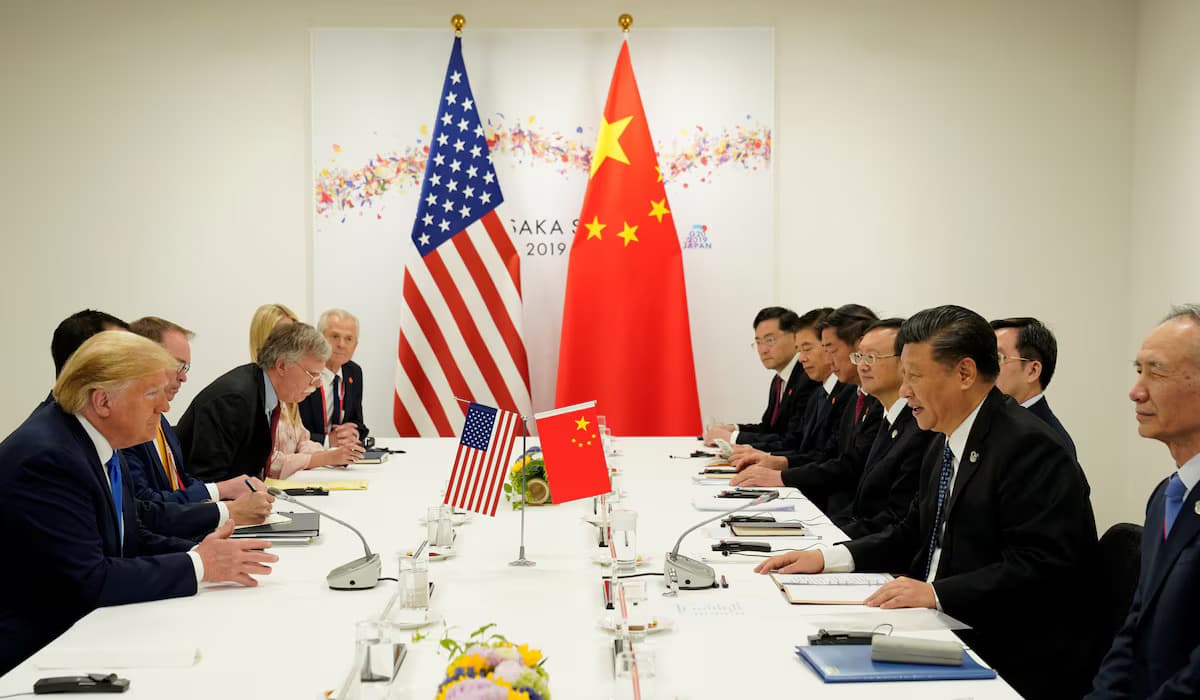We're loading the full news article for you. This includes the article content, images, author information, and related articles.
The high-stakes summit between the US and Chinese leaders on Thursday could significantly impact Kenya as Washington reviews Nairobi's strategic ally status over its deepening ties with Beijing.

United States President Donald Trump and Chinese President Xi Jinping are scheduled to hold a bilateral meeting in South Korea on Thursday, October 30, 2025, the White House has confirmed. The meeting, the first in-person discussion between the two leaders since Trump's second term began, will take place on the sidelines of the Asia-Pacific Economic Cooperation (APEC) summit being held in Gyeongju and Busan. The talks come at a critical juncture, with escalating trade disputes and geopolitical friction defining the relationship between the world's two largest economies.
President Trump's Asia tour begins Friday, October 24, 2025, with a departure for Malaysia for meetings with Prime Minister Anwar Ibrahim and to attend an Association of Southeast Asian Nations (ASEAN) summit. He will then travel to Tokyo for talks with Japanese Prime Minister Sanae Takaichi on Tuesday, October 28, before arriving in South Korea on Wednesday, October 29, for a summit with South Korean President Lee Jae Myung. The meeting with President Xi is scheduled for the following morning, local time.
The agenda for the Trump-Xi meeting is expected to be dominated by contentious trade issues. In recent months, Washington and Beijing have been locked in a tit-for-tat dispute, with the Trump administration threatening 100% tariffs on Chinese imports. This was in response to China expanding its export curbs on rare earth minerals, which are critical for high-tech manufacturing. President Trump has also publicly stated he will raise the issue of China's role in the flow of fentanyl precursor chemicals, which have fueled an opioid crisis in the US. Broader geopolitical issues, including the status of Taiwan and the ongoing war in Ukraine, are also anticipated to be key discussion points.
Analysts remain cautious about the prospects for a major breakthrough, suggesting the primary goal for both sides may be to de-escalate tensions and stabilize the relationship rather than resolve deep-seated structural disagreements. The meeting follows a phone call between the two leaders in September, where they initially agreed to the APEC summit talks.
For Kenya, the outcome of this summit carries significant weight. The meeting occurs amidst a period of intense strain in US-Kenya relations, directly linked to Nairobi's growing partnership with Beijing. In August 2025, reports emerged that influential US lawmakers, led by Senator Jim Risch, were pushing for a formal review of Kenya's designation as a Major Non-NATO Ally (MNNA). This status, granted in 2024, provides Kenya with preferential access to US military and economic benefits.
The move to reassess the alliance was triggered by Kenyan President William Ruto's state visit to Beijing in April 2025, where he praised China's role in a "new world order." This statement was viewed in Washington as a public alignment with a key strategic rival, prompting calls for a detailed review of Kenya's military, political, and financial engagements with China, including its participation in the Belt and Road Initiative. China, Kenya's largest bilateral lender, has financed major infrastructure projects across the country. In response to the US pressure, the Chinese ambassador to Kenya, Guo Haiyan, condemned what she termed a "cold-war mentality and hegemonic behaviour" from the US in August 2025.
A de-escalation of tensions between Washington and Beijing following the summit could provide Nairobi with more diplomatic breathing room. It might lower the geopolitical temperature and reduce the pressure on Kenya to choose sides. Conversely, a failed or confrontational meeting could intensify the US-China rivalry, potentially forcing Kenya and other East African nations into more difficult economic and security decisions. Kenyan Foreign Affairs Minister Musalia Mudavadi is expected to engage in intense lobbying to navigate this complex dynamic, balancing the nation's long-standing security cooperation with the US against its critical economic partnership with China.
Keep the conversation in one place—threads here stay linked to the story and in the forums.
Sign in to start a discussion
Start a conversation about this story and keep it linked here.
Other hot threads
E-sports and Gaming Community in Kenya
Active 9 months ago
The Role of Technology in Modern Agriculture (AgriTech)
Active 9 months ago
Popular Recreational Activities Across Counties
Active 9 months ago
Investing in Youth Sports Development Programs
Active 9 months ago